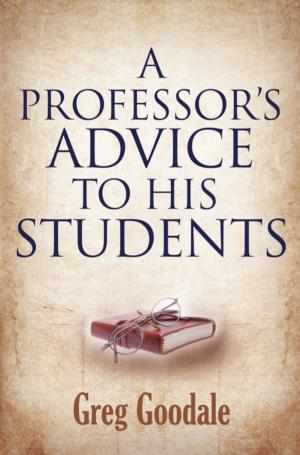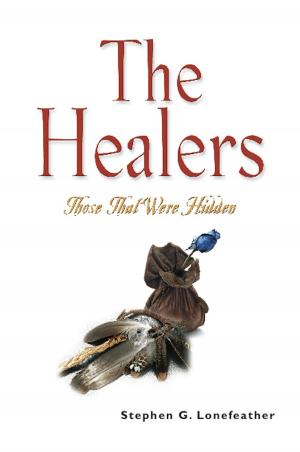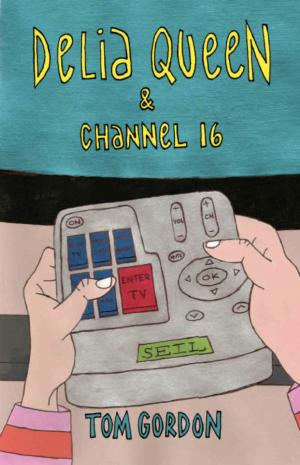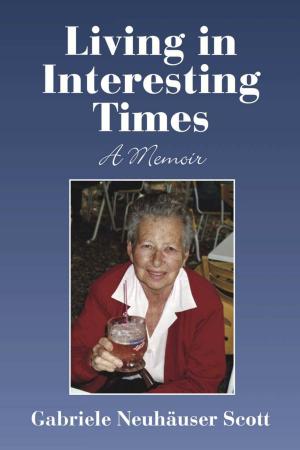| Author: | J. K. Bozeman | ISBN: | 9781621415497 |
| Publisher: | BookLocker.com, Inc. | Publication: | October 15, 2012 |
| Imprint: | Language: | English |
| Author: | J. K. Bozeman |
| ISBN: | 9781621415497 |
| Publisher: | BookLocker.com, Inc. |
| Publication: | October 15, 2012 |
| Imprint: | |
| Language: | English |
Doodlebug is the nickname Alfred, an elderly rancher, gives Trevor - Dude, to his friends - when he informally adopts the seven-year-old, rescuing him from a squalid travel trailer where he’d been abandoned with his drug-addled grandmother and her abusive alcoholic partner. His unwed mother was in prison for selling drugs, and she dies there of pneumonia secondary to AIDS.
Now nineteen, Dude is in a county correctional facility, charged with assisting the suicide of his guardian. He reviews his unconventional upbringing on a derelict ranch near Nicklesburg, a small town northeast of Dallas, focusing on his benefactor and their life together, his struggle for acceptance and educational achievement and his friendship with L.C., a poor African-American neighbor.
Both are avid basketball players, and Dude is especially gratified by the self-transcendence he feels in group play. He’s also an ardent long-distance runner, finding solace and self-esteem in this solitary endeavor.
He has adopted the political philosophy of his guardian, a World War II vet, liberal Democrat and admirer of FDR. Though not especially devout, he’s committed to the principles of Methodism: reason, social and economic justice, racial amity, conscientious consumption, environmental responsibility. Such convictions don’t fit well in his conservative, fundamentalist-dominated milieu.
A wealthy new boy, Kit, is handsome, self-confident, a gifted athlete, but unable to cope with bullies. (He has been diagnosed Asperger’s syndrome, but his attentive parents keep this secret.) Dude defends him, sparking a friendship he resists because of their social and economic differences.
Dude is heterosexual, in his one brief but significant shared sexual experience, as well as his fantasies, which he confesses with self-deprecating humor. He’s in love with a friend and classmate, LeeAnn, but too sensitive and self-conscious not to have doubts about his desirability and sexual competence.
His shame and self-doubts are exacerbated when an older bully taunts him about his mother, and he retaliates with a feral attack that leaves him further humiliated and self-isolating. Kit’s attachment grows, triggering a struggle with homophobia.
When Alfred’s closest friend, Nolan, has a stroke and is left comatose on life support, Dude has a harrowing confrontation with his terror of death and attempts to elude his responsibility to Alfred by joining the Marines - which Alfred strongly opposes.
When Dude’s oldest friend and debate partner, Dwight, is rumored to be gay and ostracized, he must overcome his deeply embedded homophobia to support him. Unfortunately, concentration on his friends renders him less attentive to his benefactor.
Alfred, proudly self-sufficient, dreads being in pain and a helpless burden during his demise with pancreatic cancer, but he loves Dude too much to subject him to the trauma of his suicide and, as a graduation gift, sends him on a trip.
Because Alfred has willed his property to Dude rather than his son, he is arrested and accused of complicity in the suicide.
Incarceration gives Dude the opportunity to review his experience, come to grips with his shame, guilt and fears, and recognize how truly fortunate he is.
Doodlebug is the nickname Alfred, an elderly rancher, gives Trevor - Dude, to his friends - when he informally adopts the seven-year-old, rescuing him from a squalid travel trailer where he’d been abandoned with his drug-addled grandmother and her abusive alcoholic partner. His unwed mother was in prison for selling drugs, and she dies there of pneumonia secondary to AIDS.
Now nineteen, Dude is in a county correctional facility, charged with assisting the suicide of his guardian. He reviews his unconventional upbringing on a derelict ranch near Nicklesburg, a small town northeast of Dallas, focusing on his benefactor and their life together, his struggle for acceptance and educational achievement and his friendship with L.C., a poor African-American neighbor.
Both are avid basketball players, and Dude is especially gratified by the self-transcendence he feels in group play. He’s also an ardent long-distance runner, finding solace and self-esteem in this solitary endeavor.
He has adopted the political philosophy of his guardian, a World War II vet, liberal Democrat and admirer of FDR. Though not especially devout, he’s committed to the principles of Methodism: reason, social and economic justice, racial amity, conscientious consumption, environmental responsibility. Such convictions don’t fit well in his conservative, fundamentalist-dominated milieu.
A wealthy new boy, Kit, is handsome, self-confident, a gifted athlete, but unable to cope with bullies. (He has been diagnosed Asperger’s syndrome, but his attentive parents keep this secret.) Dude defends him, sparking a friendship he resists because of their social and economic differences.
Dude is heterosexual, in his one brief but significant shared sexual experience, as well as his fantasies, which he confesses with self-deprecating humor. He’s in love with a friend and classmate, LeeAnn, but too sensitive and self-conscious not to have doubts about his desirability and sexual competence.
His shame and self-doubts are exacerbated when an older bully taunts him about his mother, and he retaliates with a feral attack that leaves him further humiliated and self-isolating. Kit’s attachment grows, triggering a struggle with homophobia.
When Alfred’s closest friend, Nolan, has a stroke and is left comatose on life support, Dude has a harrowing confrontation with his terror of death and attempts to elude his responsibility to Alfred by joining the Marines - which Alfred strongly opposes.
When Dude’s oldest friend and debate partner, Dwight, is rumored to be gay and ostracized, he must overcome his deeply embedded homophobia to support him. Unfortunately, concentration on his friends renders him less attentive to his benefactor.
Alfred, proudly self-sufficient, dreads being in pain and a helpless burden during his demise with pancreatic cancer, but he loves Dude too much to subject him to the trauma of his suicide and, as a graduation gift, sends him on a trip.
Because Alfred has willed his property to Dude rather than his son, he is arrested and accused of complicity in the suicide.
Incarceration gives Dude the opportunity to review his experience, come to grips with his shame, guilt and fears, and recognize how truly fortunate he is.















